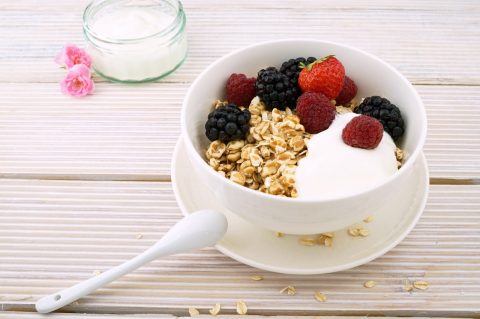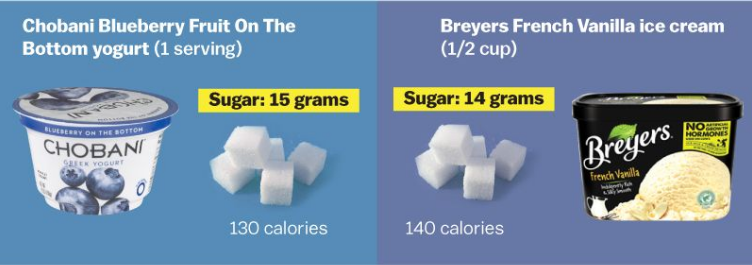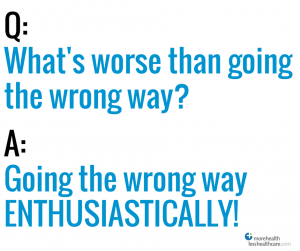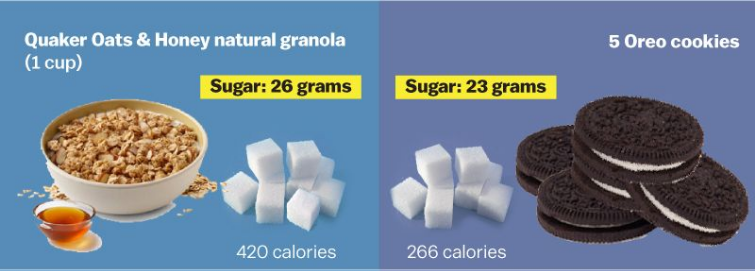
Breakfast vs. Dessert
On my initial intake paperwork for people, I have the potential client list out their food items. Under more investigation of the ingredients of those foods, I vote that breakfast is the most important meal…to skip entirely.
Think about it. Why is chocolate milk a ‘health food,’ great for recovery but chocolate ice cream will send you to an early grave? Please don’t hit reply with, ‘that’s why I just let my ice cream melt and call it a smoothie.’ I’ve already used that line.

Javier Zarracina/Vox
What’s the big deal? The big deal is that in case you hadn’t seen it this week, the NY Times ran a column called, ‘How the Sugar Industry Shifted Blame to Fat.’
“The documents show that a trade group called the Sugar Research Foundation, known today as the Sugar Association, paid three Harvard scientists the equivalent of about $50,000 in today’s dollars to publish a 1967 review of research on sugar, fat and heart disease. The studies used in the review were handpicked by the sugar group, and the article, which was published in the prestigious New England Journal of Medicine, minimized the link between sugar and heart health and cast aspersions on the role of saturated fat.
Even though the influence-peddling revealed in the documents dates back nearly 50 years, more recent reports show that the food industry has continued to influence nutrition science.
Last year, an article in The New York Times revealed that Coca-Cola, the world’s largest producer of sugary beverages, had provided millions of dollars in funding to researchers who sought to play down the link between sugary drinks and obesity. In June, The Associated Press reported that candy makers were funding studies that claimed that children who eat candy tend to weigh less than those who do not.
The Harvard scientists and the sugar executives with whom they collaborated are no longer alive. One of the scientists who was paid by the sugar industry was D. Mark Hegsted, who went on to become the head of nutrition at the United States Department of Agriculture, where in 1977 he helped draft the forerunner to the federal government’s dietary guidelines. Another was Dr. Fredrick J. Stare, the chairman of Harvard’s nutrition department.”
When did the attack on fat happen? The late 1970’s. For my entire life, fat has been villainized in the name of better heart outcomes with zero results of creating better heart health. It has ballooned to just a bunch of phony awareness, junk nutrition parameters, and billions in revenue of cholesterol lowering drugs that make your doctor enthusiastic when your cholesterol numbers are lower than 140.

Side note, if your cholesterol levels are under 140, even 160, and your doctor is enthusiastic, run for your life…literally. It’s killing you. If you need a place to run to, my door is open.
The point is that if your breakfast is made of the exact same ingredients as your dessert, just disguised under a different name, then breakfast is the most important meal…to skip. Sugar is the real villain and you’ve been sold a bill of lies for 40 years that ‘it’s just not that bad for you.’ So when you hear dietary guidelines being preached, put it through the ‘who will gain from this recommendation’ sifter.
If you hear fat is bad, it’s probably coming from the sugar industry. When you hear coconut is bad, it’s probably coming from the soy industry. When you hear the government endorse anything nutritionally, look at the amount of lobby money that went into those recommendations. You have been shaped by a nutritional lobby, which is heavily subsidized by your tax dollars. There’s great incentive to get you to feel good about those choices.



Can you give a little more information about your bolded side note on low cholesterol? What should the concern be for levels below 160 – especially if not attained with the use of a statin?
Cholesterol is the main building block of brain tissue, our sex hormones (testosterone, estrogen, progesterone, DHEA), cortisol, vitamin D, and many other structures. If too low, many of these functions to sustain life long term suffer. With it being low, it could point at malabsorption issues and liver issues. Cholesterol itself needs to be put in context with other lab ranges, lifestyle choices, and past history to give more of a concrete answer on why it’s low and what to do about it.